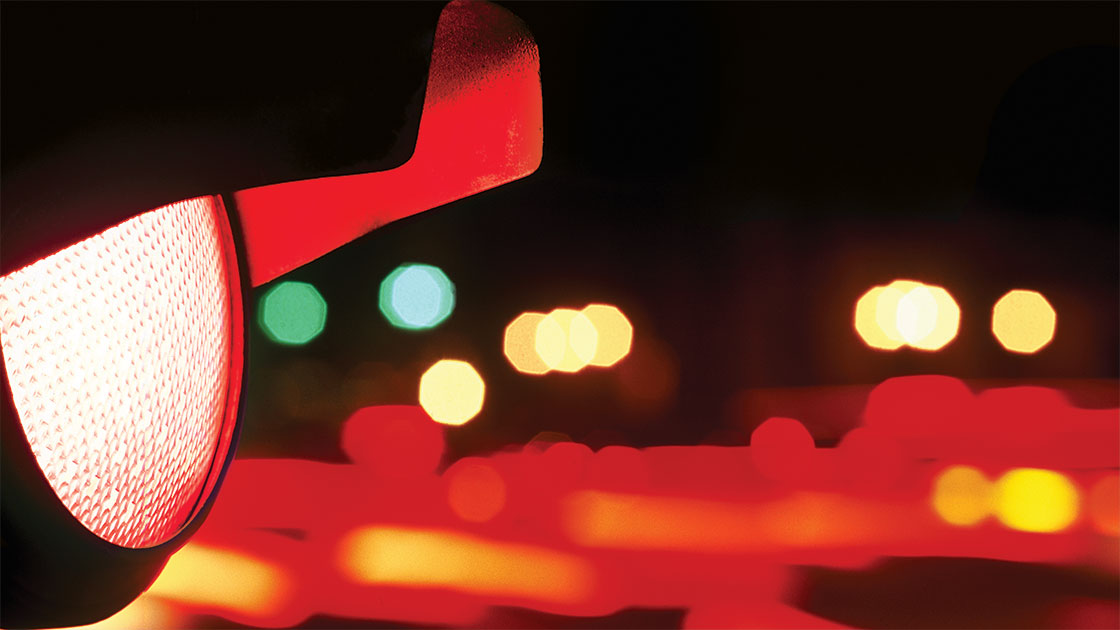Most drivers favor red light cameras, a new survey of 14 big U.S. cities finds
June 30, 2011

Two-thirds of drivers in 14 big cities with longstanding red light camera programs support their use, a new survey from the Insurance Institute for Highway Safety indicates. The findings follow an Institute study demonstrating that cameras have reduced the rate of fatal red light running crashes by 24 percent in these same cities.
The strong public support confirms that red light camera opponents, while vocal and often influential, are a minority. Even in Houston, a city that voted in a November 2010 referendum to shut off its cameras, a majority of drivers say they favor red light camera enforcement.
"Most drivers don't buy the argument that it's somehow wrong to enforce the law just because you're using a camera to do it," says Anne McCartt, the Institute's senior vice president for research. "They understand that this technology is preventing crashes in their cities."
An Institute study released earlier this year showed that red light cameras save lives. Researchers looked at U.S. cities with populations over 200,000 and compared those with red light cameras to those without. In the 14 cities that had cameras in 2004-08 but didn't have them in an earlier comparison period, automated red light enforcement saved 159 lives. If cameras had been operating in those years in all large U.S. cities, a total of 815 deaths would have been avoided.
As a follow-up, the Institute gauged drivers' experience with cameras and their perceptions of them. More than 3,000 people in the 14 study cities were interviewed by cellphone and landline between Feb. 19 and March 29. The survey has a margin of error of about 2 percentage points. An additional 300 people were surveyed in Houston because of its recent vote to shut off the cameras. The city installed cameras in 2006, which was too late to be included in the crash study group. The Houston survey has a margin of error of 6 percentage points.
More than 9 of 10 drivers surveyed in the 14 cities believe running a red light is unacceptable, and more than 8 of 10 deem it a serious threat to personal safety. Two-thirds favor red light cameras, and 42 percent strongly favor them.
Among the 89 percent of drivers who are aware of the camera programs in their cities, a majority say the devices have made intersections safer. Nearly half know someone who has gotten a ticket, and 17 percent have gotten one themselves. Of the latter, about half believe it was deserved.
Previous surveys also have found widespread support for red light cameras, but opponents continue to claim that the programs violate privacy and are cooked up by cities merely to generate revenue. Voters in 8 cities have rejected camera programs in ballot initiatives during the past 3 years.
In Houston, where 53 percent of voters cast ballots against red light cameras in November, the people who went to the polls don't seem to represent the majority of drivers. Fifty-seven percent of drivers there favor cameras, and 45 percent strongly favor them. However, opposition is firmer, with 28 percent saying they strongly oppose cameras versus 18 percent in the other 14 cities.
In the 14 study cities, a little more than a quarter of respondents said they oppose cameras. Asked why, 26 percent said cameras can make mistakes. The contention that cameras are about money, not safety, was mentioned by 26 percent. Nineteen percent said they make roads less safe and lead to more crashes, while 17 percent argued that they're an invasion of privacy. The question was open-ended, and respondents could give as many reasons as they wanted.
The survey found less support for the use of cameras to crack down on right-on-red violations than for red light cameras generally. Such violations include making a right on red where it is not permitted and making the turn without stopping. Cities differ as to whether they issue tickets for rolling right-on-red turns when they are caught on camera. Nearly a fifth of drivers say they support cameras but oppose right-on-red enforcement. Forty-one percent of drivers support using cameras for these violations.
"Right-on-red violations usually aren't associated with T-bone crashes, but they make intersections much more dangerous for pedestrians in particular," McCartt says. "The survey results show cities need to do a better job explaining this issue to drivers."
Percentage of drivers who support red light cameras in each of 14 study cities
| Bakersfield, CA | 68% |
| Baltimore, MD | 67% |
| Chandler, AZ | 75% |
| Chicago, IL | 65% |
| Garland, TX | 66% |
| Long Beach, CA | 48% |
| Phoenix, AZ | 74% |
| Portland, OR | 68% |
| Raleigh, NC | 62% |
| Sacramento, CA | 71% |
| San Diego, CA | 64% |
| Santa Ana, CA | 54% |
| Toledo, OH | 58% |
| Washington, DC | 78% |